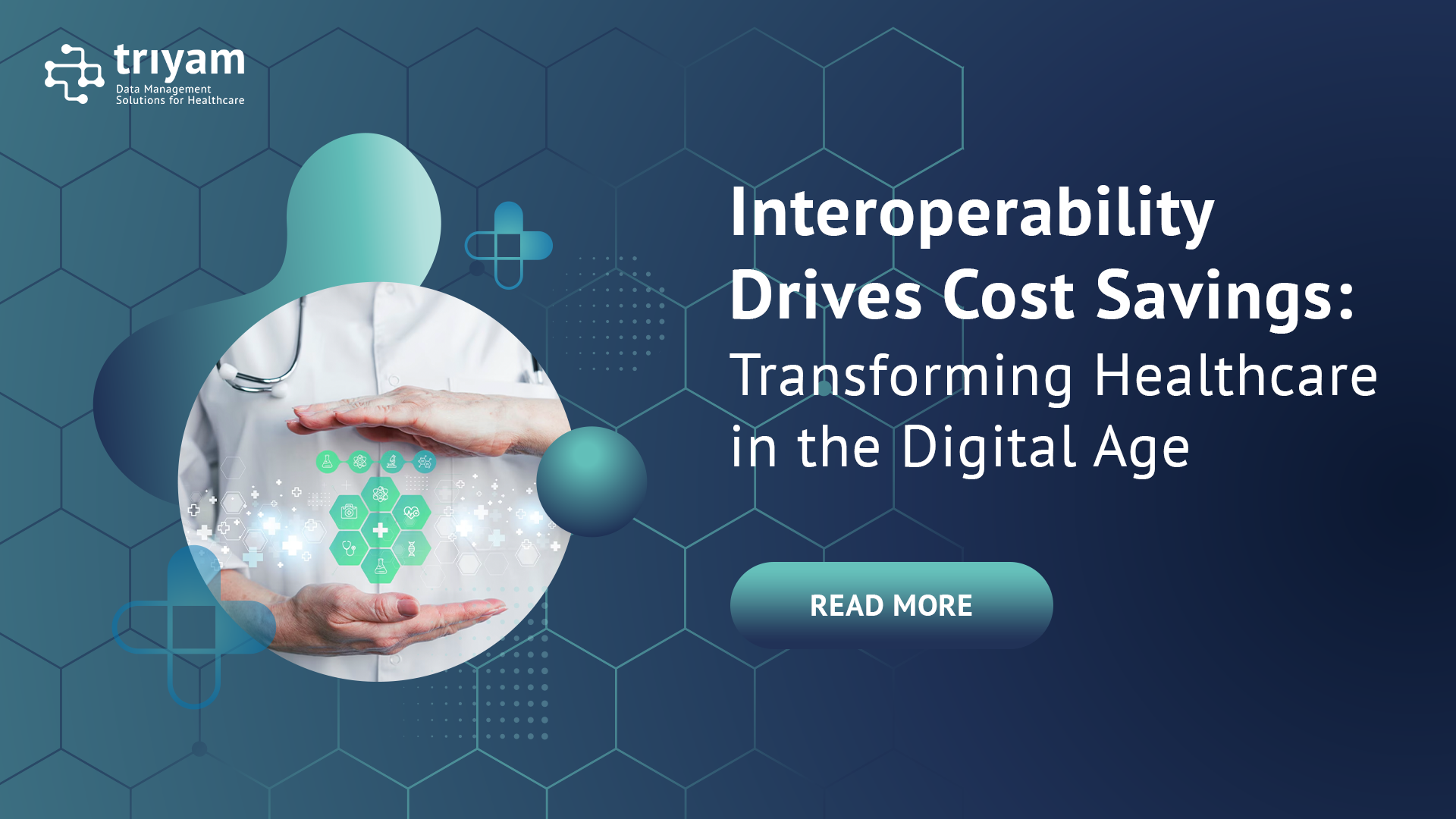We’re in the midst of a digital revolution in the healthcare industry, and one of the driving forces is interoperability. This means that different systems and applications can seamlessly communicate and exchange patient data. Not only does interoperability improve patient care, but it also helps drive cost savings throughout the entire healthcare ecosystem.
In this article, we’ll look at three ways interoperability is transforming healthcare and drives significant financial benefits:
- Streamlined Workflows:
With interoperability in place, there’s no more manual data entry or redundant administrative tasks to worry about. Healthcare providers can spend their time delivering care instead of dealing with paperwork. As a result, workflows become more efficient, leading to higher productivity and operational efficiencies.
- Reduced Medical Errors:
Medical errors are one of the biggest contributors to healthcare costs. Without interoperability, patients may be misdiagnosed, misdiagnosed, or misused. Inaccurate or incomplete patient information might be utilized by healthcare providers at the time of care delivery. This increases the risk of errors such as duplicate testing, incorrect patient histories, incorrect medication orders, and expensive malpractice claims.
- Improved Care Coordination:
Healthcare interoperability improves care coordination between providers, specialists, and facilities. By allowing different healthcare entities to access a patient’s full history and treatment plan, they can make more informed decisions and avoid unnecessary or duplicative tests and treatments, leading to improved quality of care and lower healthcare costs.
- Enhanced Data Analytics:
Healthcare organizations can collect and analyze large amounts of healthcare data through interoperable systems. This data can identify trends and track outcomes, as well as to help make decisions based on evidence. Through an informed analytical approach, providers can optimize operations, identify opportunities to save money, and manage resources more effectively.
- Reduced Administrative Costs:
Healthcare interoperability simplifies administrative processes, such as billing and claims processing, as well as insurance verification. By allowing healthcare providers to exchange data with payers, there is less paperwork, less error, and less administrative overhead, resulting in significant cost savings.
- Patient Engagement and Preventive Care:
Healthcare interoperability empowers patients to be actively involved in their health care. Patients can access electronic health records (EHRs), book appointments, and interact online with their health care providers. This engagement encourages preventive care, encouraging patients to manage their chronic conditions and avoid costly hospital stays.
- Cost-effective Telehealth:
The growth of telehealth goes hand-in-hand with interoperability. With telehealth services, patients can be consulted and monitored remotely, eliminating the need for costly in-office visits and hospital admissions. Not only does this improve access to care, but it also lowers healthcare costs for providers and patients alike.
In conclusion, interoperability is revolutionizing healthcare, improving patient care, and delivering significant cost savings. With more interconnected healthcare systems and seamless data flows, the industry stands poised for greater efficiency and better outcomes. Implementing interoperability isn’t just a technical advancement; it’s a strategic necessity for healthcare organizations that want to succeed in the digital era and reduce the financial burden for patients and the entire system.
If your hospital needs a healthcare data management solution, don’t hesitate to reach out to Triyam today! Triyam offers a legacy data management solution that enables hospitals to streamline and oversee their data operations effectively. Our software is adept at seamlessly integrating with a wide range of hospital compliance solutions. With its scalability and user-friendly design, Triyam’s solution ‘Fovea’ proves to be an ideal choice for hospitals of all sizes.
Schedule a Live Demo Now!

